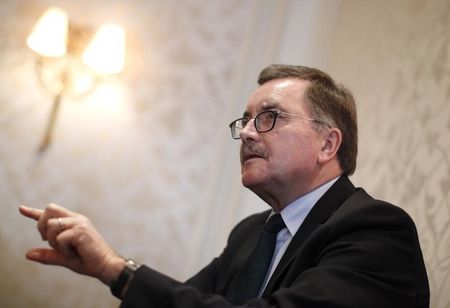FRANKFURT (Reuters) - The European Central Bank is turning into a European "bad bank" by loading up on bundled-up loans, and its record-low interest rates will not do anything to promote lending in the euro zone, former ECB chief economist Juergen Stark said.
Stark, a former ECB executive board member and an arch-hawk, quit the bank in 2011 to protest its policies. Now he says the September rates cut would be "ridiculous, if the matter was not so serious".
The ECB cut its main interest rate to 0.05 percent on Thursday and pledged to buy asset-backed securities (ABS) on top of its four-year loan offer, or TLTROs, in a fresh attempt to ward off deflation and stimulate the euro zone economy.
"The ECB is taking enormous risks onto its balance sheet with the purchases of ABS - of whatever quality - and is turning itself into a European bad bank," Stark wrote in a guest column for the German newspaper Handelsblatt, which is to be published on Tuesday.
He said the rate cut could be seen as a "symbolic" move, if it had not been driven for the first time by a pursuit of an exchange rate target. Its goal was a targeted weakening of the euro exchange rate, he said, which had been demanded repeatedly by French and Italian politicians.
"Zero-interest-rates will, however, not produce a single euro in additional lending, and this inefficiency will in the long term among other things further undermine the ECB reputation," Stark wrote in his piece.
The ECB has said many times that it does not have an exchange rate policy target but aims only for price stability.
His comments come after an ally of German Chancellor Angela Merkel in a rare public attack, criticised the ECB's ABS programme, saying it would scare Germans.

(Writing by Eva Taylor; Editing by Larry King)
